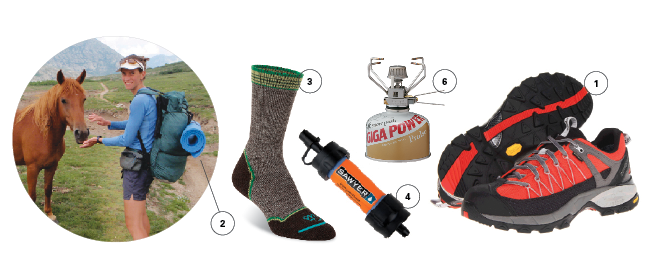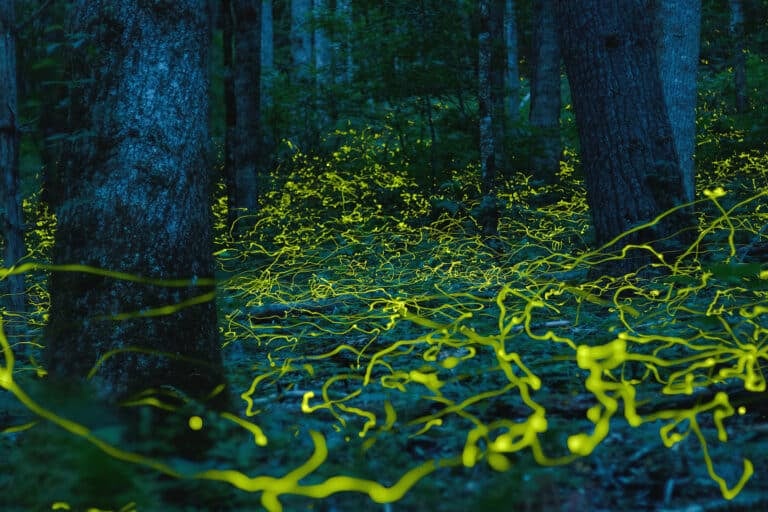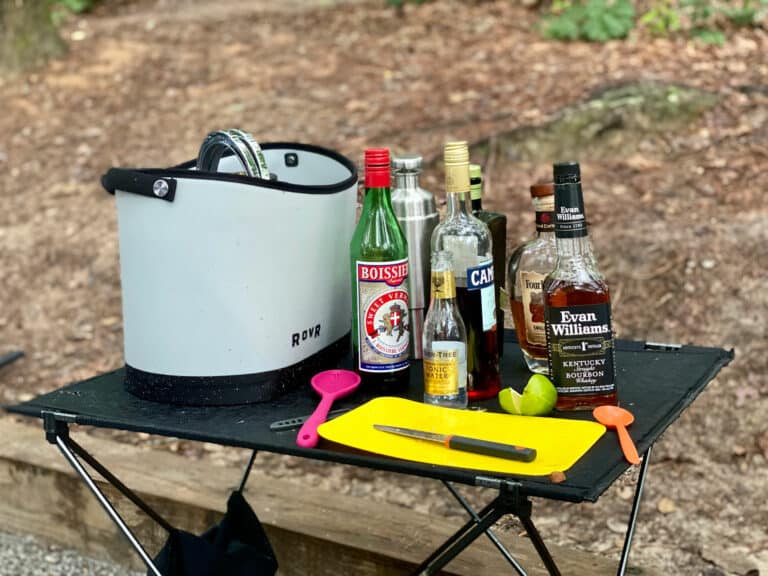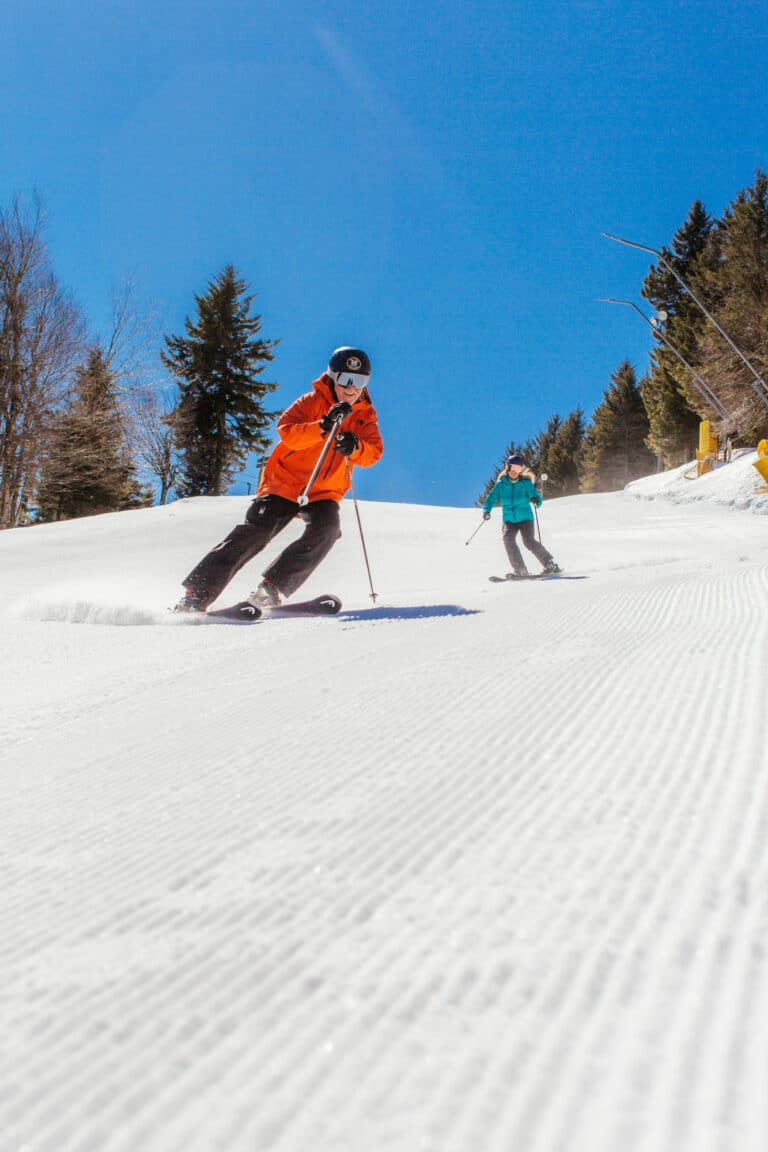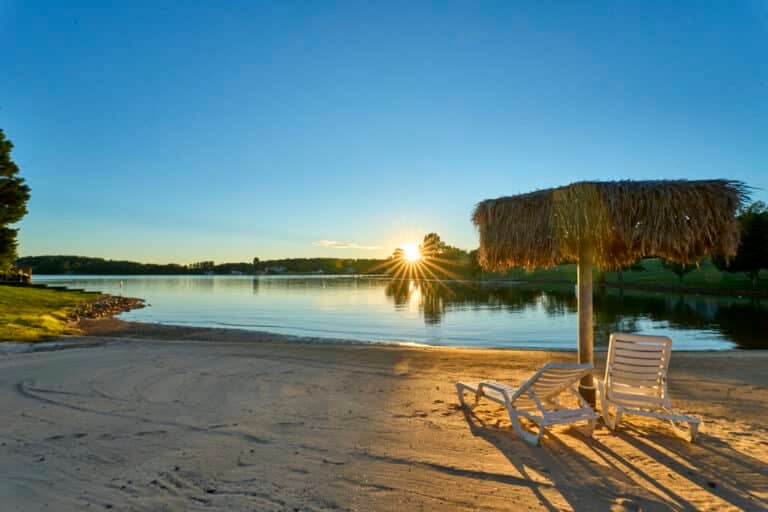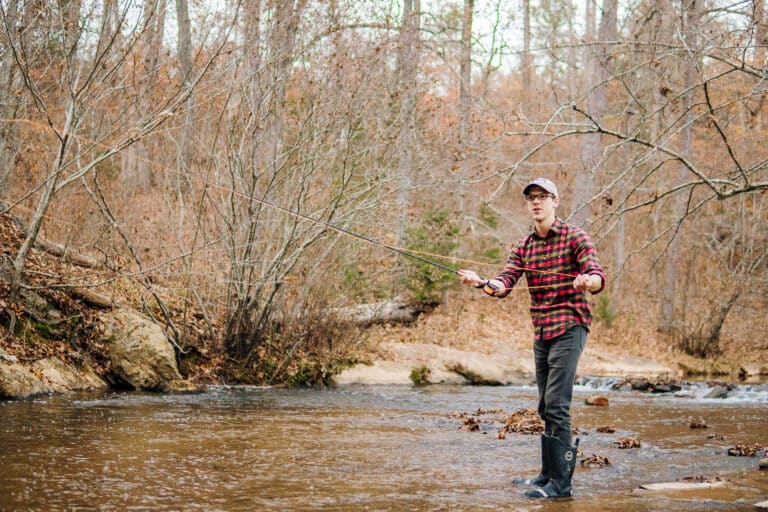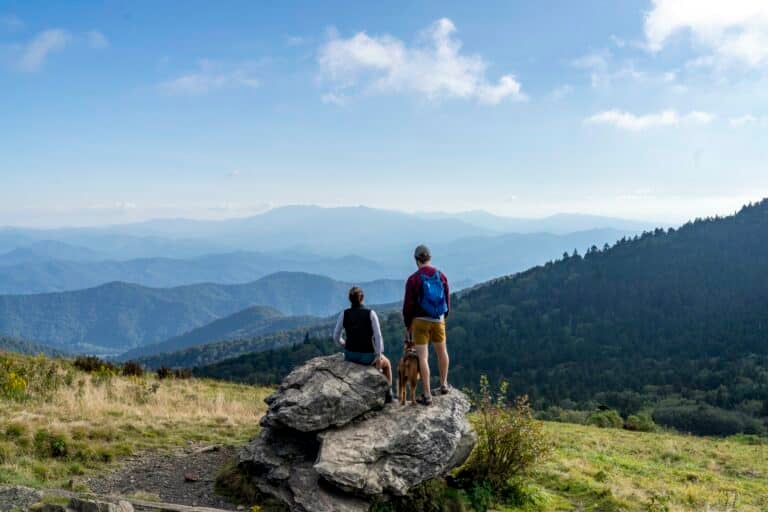To find out what the absolute essentials are for hiking the Appalachian Trail, we went straight to the source.
Jennifer Pharr Davis holds the overall speed record for thru-hiking the Appalachian Trail. She is the founder of Blue Ridge Hiking Company in Asheville, N.C., and she travels and speaks to hikers and runners across the region and the country. Her strategy: everything she carries is important—nothing more, nothing less. Here are a few of her favorite gear and apparel picks for both day hikes and overnights.
Day Hikes
1. Zamberlan Shoes
“People are constantly asking whether I prefer hiking in trail runners and boots. I respond, Both! Since the birth of backpacking, hikers have relied on boots. They protect and support feet on technical terrain, they provide great traction, and they are durable. A good pair of boots can last a couple of thousand miles. But trail runners are lightweight and breathable, less expensive and they don’t require the break-in miles boots demand. I went back and forth between trail runners and boots until I found Zamberlan Crossers. The Crossers are a “cross” or hybrid of a traditional boot made with lightweight, breathable materials. They last a really long time and they have great traction and support that’s especially important when I am carrying my 20-month-old daughter in a pack. But they are still comfortable and light enough to allow me to fastpack or put in high mileage days.” About $119, depending on model; zamberlanusa.com
2. McHale Pack
“Footwear and packs are extremely important to me because those are the items that I feel all day long. An ill-fitting pack will turn even a simple day hike into a miserable march. With a tall, slender frame and a disdain for too much weight on my shoulders, I was a tough match for traditional packs. For about 2,000 miles I actually thought that packs were supposed to hurt. I thought it was part of hiking and that I just needed to suck it up. But then I heard about Dan McHale. McHale started a cottage industry by hand making custom packs. He requires clients to send measurements and pictures and then go through a demo process to ensure that the pack is a perfect fit. It takes a couple of months to receive your pack, but it is worth the wait! Now when I load up with 40 pounds, it simply feels like a good friend is giving me a gentle hug around the waist.” Custom prices vary; mchalepacks.com
3. Fits Socks
“These became my go-to sock on the 2011 Appalachian Trail record. They are extremely durable but at the same time soft and cushioned. They never bunch up, and the socks only have one seam which helped cut down on blisters and rubbing. They also wick away moisture incredibly well. I only occasionally had to use Gold Bond powder, which is another amazing piece of backpacking gear!”
$20.99 Medium Hiker Crew; fitssock.com
4. Sawyer Mini
“A water parasite is the most unpleasant trail souvenir that I can think of. When I started hiking I had to choose between using heavy pump filters or chemical treatments. I didn’t like the weight of the filter or the wait that the chemicals entailed. Today, I use the Sawyer Mini. It boasts the finest micron filter on the market and it only weighs two ounces. It is guaranteed to treat 100,000 gallons. You can screw it onto a water bottle or water bladder. Or you can use the straw attachment and drink directly from a water source.” $24.95; sawyer.com
Overnighters
“When it comes to solo overnight trips, I am a minimalist,” says Davis. “I like the focus to be on hiking rather than on camping. But anyone who knows me knows that I am a wimp in cold weather.”
5. Western Mountaineering Sleeping Bag
“I have used Western Mountaineering Bags for the past eight years. They are expensive, but the high quality goose down makes the bags lightweight, extremely packable, and super warm. I actually gave my husband a Western Mountaineering sleeping bag as his engagement gift. Back then I thought it was imperative that he had a left zip bag and I had a right zip bag so we could zip up together. Six years later, I look back and laugh.” $329 – $499; westernmountaineering.com
6. Snow Peak Stove
“I don’t like cooking on the trail and I will only cook when I am backpacking with someone else. But Snow Peak does make my life pretty easy. All I have to do is screw their lightweight stove onto a gas canister and press the igniter! It is easy to control the flame, which is good because I am paranoid about forest fires, and it usually gets the water boiling in less than five minutes.” $39.95 – $49.94; snowpeak.com
7. Mountain House Meals
“I don’t like to cook, but I really hate doing dishes on the trail. Mountain House dehydrated dinners are not only delicious, but they are self-contained in a re-sealable pack. No fuss. No mess. All I have to do is heat water, wait, eat my dinner, and then zip up the pouch when I am done. A lot of times, if I have leftovers, I will save them in the pouch and eat them for lunch the following day. But I rarely have leftovers because Mountain House is so tasty. My favorite meal is the Chili Beef Mac. Try adding cheese and Fritos. And yes, I have occasionally made Mountain House at home.” $6.99 – $9.29 per entree; mountainhouse.com
